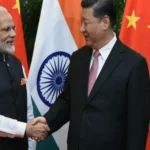The ongoing saga of India and Pakistan’s cricketing relationship took another turn recently when the Board of Control for Cricket in India (BCCI) rejected a proposal that would have allowed the Indian cricket team to participate in the ICC Champions Trophy scheduled to take place in Pakistan in 2025. Despite Pakistan’s assurances of logistical support, including arrangements for return flights after each match, the BCCI’s stance reflects a complicated web of historical, political, and logistical considerations that continues to define the sporting landscape between these two cricketing giants.
Historical Context of India-Pakistan Cricket
The cricketing rivalry between India and Pakistan is one of the most intense and storied in the history of the sport. Since the partition of British India in 1947, cricket has served not only as a source of entertainment but also as a platform for national pride and identity for both countries. Matches between the two nations have historically drawn massive audiences, both in stadiums and through television broadcasts, making them some of the most watched sporting events globally.
However, this rivalry has been severely affected by the political climate between the two countries. The last bilateral series took place in 2008, with India touring Pakistan. Since then, encounters have primarily been limited to international tournaments such as the ICC World Cup and the Champions Trophy. This cessation of bilateral series has led to frustration among fans who yearn for more frequent encounters, as well as from cricket boards that recognize the financial benefits of such matches.
The Proposal from PCB
In an effort to rekindle cricketing ties, the Pakistan Cricket Board (PCB) recently proposed that India participate in the ICC Champions Trophy, which is slated to take place across three venues in Pakistan: Karachi, Lahore, and Rawalpindi, from February 19 to March 9, 2025. The PCB extended an offer of logistical support, emphasizing its commitment to ensure the safety and comfort of the Indian team during their stay in Pakistan.
Despite these overtures, the BCCI swiftly communicated its position. According to a BCCI official, there had been no formal communication from the PCB regarding the proposal, which served as a primary reason for the rejection. The official further stated that even if an offer had been made, it would have been unlikely to sway the BCCI’s decision, reiterating that any participation would ultimately depend on the directives issued by the Indian government.
BCCI’s Firm Stance
The BCCI’s response underscores the significant influence that politics has on sports, particularly in the South Asian context. The board’s position is not merely about logistical challenges; it is deeply intertwined with national security concerns. Given the tense political environment and sporadic incidents of violence between the two nations, the BCCI prioritizes the safety and security of its players above all else.
This cautious approach has been the norm for the BCCI, which has often been criticized for not engaging more actively with Pakistan cricket. Yet, the board’s reluctance is rooted in the historical context of the relationship and the current geopolitical climate.
The Hybrid Model Proposal
In light of the BCCI’s rejection of the PCB’s proposal, discussions have emerged about the possibility of a hybrid model. This model would allow for India’s Champions Trophy matches to be held in neutral venues, effectively circumventing the necessity for the Indian team to travel to Pakistan. Such an approach is not unprecedented; it has been suggested in various contexts, particularly for tournaments that involve teams from countries with strained diplomatic relations.
The hybrid model could potentially provide a compromise that satisfies both the logistical concerns of the BCCI and the PCB’s desire to host the prestigious tournament. However, implementing this model would require cooperation and agreement from the ICC, as well as the other participating nations, which complicates matters further.
The Political Implications
The rejection of the PCB’s proposal by the BCCI is reflective of the larger political landscape in the region. Sports, particularly cricket, are often seen as a means of fostering diplomacy and goodwill. However, in the case of India and Pakistan, political tensions have often overshadowed these potential benefits.
The Indian government’s stance on Pakistan has remained largely unyielding, especially following incidents of terrorism attributed to groups based in Pakistan. This has created a significant barrier to any meaningful dialogue or engagement in sports. As a result, the BCCI finds itself in a precarious position, where it must navigate not only the operational aspects of running a cricket board but also the national sentiments that influence its decisions.
The PCB’s Perspective
For the PCB, the rejection of the proposal is a significant blow. The board has invested heavily in improving cricket infrastructure and hosting international matches, viewing the potential participation of India as a golden opportunity to showcase its capabilities.
The PCB has long advocated for the resumption of bilateral cricketing ties, arguing that it would not only benefit the financial health of both boards but also foster goodwill and camaraderie between the two nations. PCB officials have often pointed out that hosting India would be a substantial boost to their cricketing ecosystem, bringing in revenue, tourism, and international attention.
However, the PCB’s efforts have been met with skepticism and frustration, as previous attempts to host Indian teams have failed, largely due to political barriers. The board continues to express hope that a solution can be found, perhaps through diplomatic channels that extend beyond the realm of cricket.
The Impact on Fans
The ongoing stalemate between the BCCI and PCB has left cricket fans in both countries feeling disappointed and frustrated. Indian fans have generally supported the BCCI’s decision to prioritize safety and security, recognizing the challenges posed by traveling to Pakistan. However, they also express a longing for the excitement and intensity that comes with matches against their traditional rivals.
Conversely, Pakistani fans are disheartened by the ongoing absence of their team from high-stakes encounters with India. The thrill of watching these two teams compete is unparalleled, and fans often take to social media to voice their dissatisfaction with the current state of affairs.
The Role of Media
The media plays a crucial role in shaping public perception regarding the cricketing ties between India and Pakistan. Coverage of the BCCI’s decision has been extensive, often delving into the historical and political context that underpins the current situation. Editorials and opinion pieces have highlighted the need for dialogue and cooperation, while also addressing the security concerns that have kept the teams apart.
Moreover, the media’s portrayal of cricket as a potential bridge for peace and diplomacy has led to public discourse on the role of sports in international relations. Many commentators argue that cricket could serve as a platform for dialogue, offering an opportunity for both countries to engage constructively and move beyond political disputes.
The Future of India-Pakistan Cricket
Looking ahead, the future of cricket between India and Pakistan remains uncertain. The ICC Champions Trophy in 2025 represents a pivotal moment, but the ongoing political and security issues cast a long shadow over the possibility of participation. While cricket administrators and fans alike hope for a thaw in relations, the reality is that significant challenges remain.
Any future cricketing engagements will likely require a combination of diplomatic initiatives and public support. Both boards must navigate the complex landscape of national sentiment, security concerns, and logistical challenges. The possibility of a hybrid model offers a glimmer of hope, but it will require cooperation from all stakeholders, including the ICC and the respective governments.
A Call for Dialogue
Ultimately, the situation calls for a renewed focus on dialogue and engagement. Both the BCCI and PCB have a responsibility to explore avenues for collaboration that transcend political divides. Cricket has the potential to be a unifying force, fostering understanding and goodwill between nations.
As the cricketing community awaits further developments, fans will continue to express their desire for a return to normalcy in the India-Pakistan cricketing landscape. The memories of electrifying matches, passionate rivalries, and moments of sporting brilliance serve as a reminder of what is at stake.
#BCCIRejectsPakistanProposal #ChampionsTrophy2025 #CricketDiplomacy #INDvsPAK #CricketPolitics







